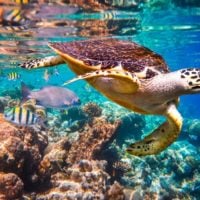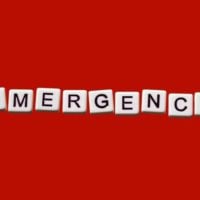Deadline: 06-Oct-21
European Commission is calling for proposals for European Participation in Global Biodiversity Genomics Endeavours that aimed at identifying all biodiversity on Earth.
Scope
- DNA-based identification systems can track biodiversity change on large geographic scales and reveal the interactions among the species in a biome.
- On the other hand, fully sequencing life, including, when relevant, information on symbiotic organisms, microbiomes and parasites, is expected to provide new tools for the conservation, preservation and regeneration of biodiversity, drug discovery and advanced biotechnology.
- The International Barcode of Life (iBOL) consortium has set up high-throughput barcoding infrastructure to barcode all biodiversity on Earth by 2045 with the help of the international community and several new infrastructures across the world. Several EU and associated countries currently participate in the barcoding endeavour, but there is no pan-European node of iBOL as such.
- Similarly, the Earth BioGenome Project (EBP), initiated in 2018, aims to sequence and catalogue the genomes of all of Earth’s currently described eukaryotic species over a period of 10 years. Several European groups have joined the endeavour but no European target or project has been proposed yet.
Funding Information
Grant amount is equal to or greater than EUR 500 000 except for:
- public bodies (entities established as a public body under national law, including local, regional or national authorities) or international organisations; and
- cases where the individual requested grant amount is not more than EUR 60 000 (lowvalue grant).
Expected Outcomes
- In support of the implementation of the Green Deal and the EU biodiversity strategy for 2030, successful proposals will help to create and maintain European nodes and networks integrated into global biodiversity genomics initiatives and help to better understand biodiversity decline, its main direct drivers and their interrelations.
- Projects results are expected to contribute to at least four of the six following expected outcomes:
- Creation and management of the European node of the International Barcode of Life.
- Creation of a European hub affiliated to the Earth Biogenome Project, with a common goal and clear targets.
- Development of the necessary networks, technologies, quality standards, reference atlas and taxonomic expertise through Europe to systematically, and comprehensively identify specific, intra-specific and ecosystem diversity through genomics techniques, such as full-genome sequencing, barcoding and metabarcoding.
- Advances in the assessment of pan-European biodiversity via genome sequencing and/or DNA barcoding of threatened/endangered species, ecologically through barcoding and/or genome sequencing (animals, plants, fungi and microorganisms), ecological keystone species and economically important species, (e.g. pollinators and their biome, soil, forest, and marine and/or freshwater communities as well as invasive species and/or disease vectors).
- Pan-European barcoding of pollinators by completing the Barcode of Life for European bees, butterflies, moths and hoverflies.
- The active support and cooperation of citizen scientists and other non-professional taxonomists.
Eligibility Criteria
- Any legal entity, regardless of its place of establishment, including legal entities from non-associated third countries or international organisations (including international European research organisations) is eligible to participate (whether it is eligible for funding or not), provided that the conditions laid down in the Horizon Europe Regulation have been met, along with any other conditions laid down in the specific call topic.
- A ‘legal entity’ means any natural or legal person created and recognised as such under national law, EU law or international law, which has legal personality and which may, acting in its own name, exercise rights and be subject to obligations, or an entity without legal personality.
- To be eligible for funding, applicants must be established in one of the eligible countries, i.e:
- the Member States of the European Union, including their outermost regions;
- the Overseas Countries and Territories (OCTs) linked to the Member States;
- eligible non-EU countries:
- countries associated to Horizon Europe
- low- and middle-income countries
For more information, visit https://bit.ly/2Ttz9lX









































